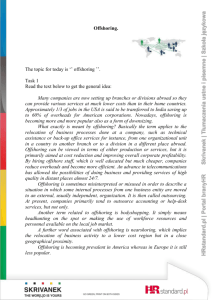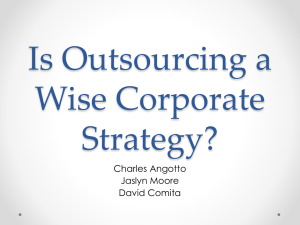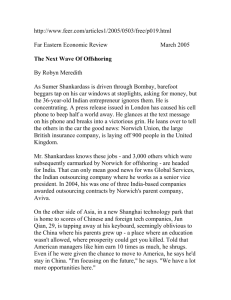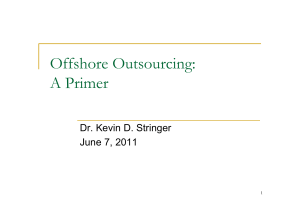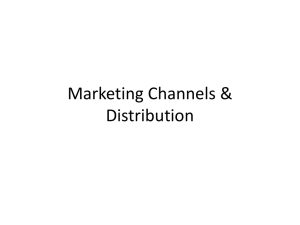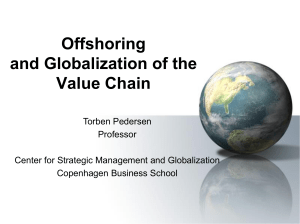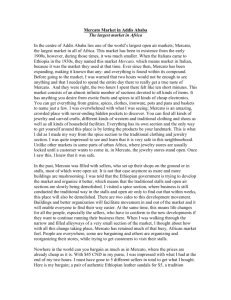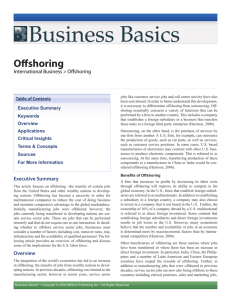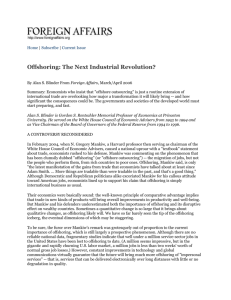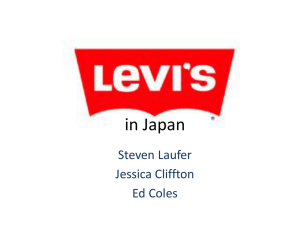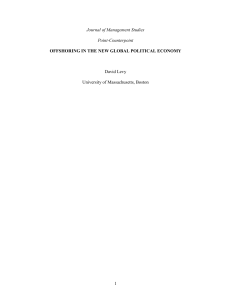set up
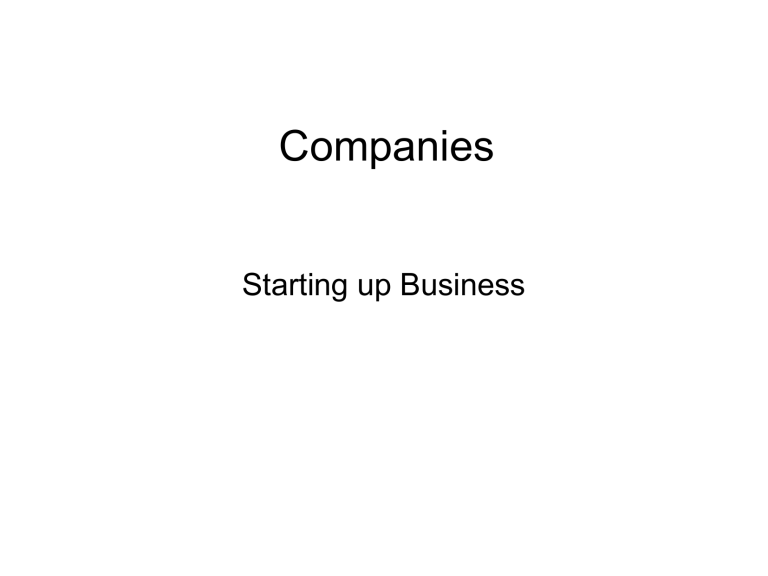
Companies
Starting up Business
MATCH the words on the right with their translations:
To start up/set up Fare ricerche di mercato
Founders
To launch
Unire
Fallimento subsidiaries Fondatori to merge with another company Filiali
To go into partnership with
To fund
To do market research
Iniziare/fondare
Lanciare sul mercato
Sopravvivere
To survive
To be successful
A failure
Andare in partenariato
Finanziare
Avere successo
To start up = iniziare
Set up = fondare (or to be set up)
Founders = fondatori
To launch = lanciare sul mercato
Subsidiaries = filiali
To merge with another company = unire con
To go into partnership with = andare in partenariato/creare un impresa collettiva
To fund = finanziare
To do market research = fare ricerche di mercato
To survive = sopravivere
To be successful = Avere successo
A failure = fallimento
To start up / To set up
The company started up in 2001
The company was set up in 2001
Jacob Davis set up his company in 2001
The company was set up by Jacob Davis.
How do companies start up /begin?
When was the company set up ? (Fondato)
Who are the founders ? (fondatori)
What new products were launched ? (lanciati sul mercato)
Did the compsny set up any subsidiaries ? (filiali)
Did the company merge with another company? (unire)
Or go into partnership?
(andare in partenariato/creare un impresa colletiva)
How was the company funded ? (finanziato)
Did the company do any market research ? (Ricerche di mercato)
How do the companies survive in time?
Why are they successful?
Levi Strauss & Co
«One of the biggest success stories»
VOCAB: Verb-nouns collocations
see article about Levi strauss & Co
Match the verbs and nouns
1. Set up
2. Launch
3. Take over
4. Win
5. Run
6. Inherit a. an award b. a business c. a product d. money e. an advertising campaign f. the presidency/directorship
VOCAB: Verb-nouns collocations
see article about Levi strauss & Co key (in order)
1. Set up
2. Launch
3. Take over
4. Win
5. Run
6. Inherit a. a business b. a product/ a business/an advertising campaign c. A business / the presidency or directorship d. an award/ (money) e. A business /an advertising campaign f. A business / money
Company history
Levis Strauss & Co
How and when did this company startup?
Levi Strauss set up a clothing business in 1853.
Who? Levi Strauss and Jacob Davis are the founders .
David had a plan for a new design and they went into partnership. (impresa collettiva)
How did they continue after Levi ’s death?
The family inherited the company and carried on the business. They won an award and the company continued to expand and grew rapidly.
«One of the biggest success stories»
Why were they so successful ?
They spent a lot of money on advertising.
They ran a strong advertising campaign .
They advertised everywhere: on posters, billboards and on TV (commercials, advertisements)
In 1985 they launched their famous laundrette commercial .
Place the dates and missing words in the time line of important events
DATE - EVENT
1902 The first Scandia truck leaves the ………….
1911 Scania …………..with Vabis.
Scania sets up a ……………………in Brazil
- The company chooses the Netherlands for its 1 °
………………………………in the EC.
Saab merges …………….Scania-Vabis.
- SaabScania ……………a new generation of trucks.
1989 – Saab-Scania wins……………………..
1992 – Saab-Scannia ……………a …………….in France.
KEY
DATE - EVENT
1902 - The first Scandia truck leaves the factory
1911 - Scania merges with Vabis.
1957 - Scania sets up a subsidiary in Brazil
1964 - The company chooses the Netherlands for its 1 ° assembly plant in the EC.
1969 - Saab merges with Scania-Vabis.
1984 - Saab-Scania launches a new generation of trucks.
1989 – Saab-Scania wins an award.
1992 – Saab-Scannia opens a factory in France.
Vocabulary: word formation
Found
• Place the correct form of the word:
• The found…..
(person) of this company is called Levi Strauss.
• The company was found……. (verb) in 1873
• The company celebrated the 150 ° anniversary of its found …… (noun)
KEY - Vocabulary: word formation
Found
• Place the correct form of the word:
• The founder (person) of this company was from
USA.
• The company was founded (verb) in 1873
• The company celebrated the 150 ° anniversary of its founding /foundation (noun)
Verb-noun collocations see article: “ The Road to Success”
1.
Build
2.
Launch
3.
Merge
4.
Set up
5.
Begin
6.
Take over a) subsidiary b) the production of oil c) an assembly plant d) with other companies e) another company f) a new product
Verb-noun collocations (KEY)
1.
Build an assembly plant
2.
Launch a new product
3.
Merge with other companies
4.
Set up a subsidiary
5.
Begin the production of oil
6.
Take over another company
STARTING UP BUSINESS
What are the ways for getting money to start up business? Ways for getting funding .
• Provide funding/capital
• Raise capital
• Secure a loan
Provide funding/capital raise capital or secure a loan
PLACE THE WORDS in the sentences:
1.If you obtain the money which you need to start your business, then you …………….
for it.
2.If someone gives you the money for your business they ……………… .
3.When someone lends you money, sometimes you have to promise to give them something, like your house, if you do not pay the money back.
When you do this you ………….. .
KEY
1. If you obtain the money which you need to start your business, then you raise capital for it.
2. If someone gives you the money for your business they provide funding or capital .
3. When someone lends you money, sometimes you have to promise to give them something, like your house, if you do not pay the money back.
When you do this you secure a loan.
Time and Money – see article
“KALIDO”
This article underlines the importance of having a great idea, “ of spotting the need for a new data management ” in order to launch a new product… and the importance “ of identifying a market to tap into.
”
Kalido is a company which provides software for data management
Why successful?
Kalido concentrated on a real customer problem and developed software directly to meet that need .
Market research?
A business plan?
Market target
(=mercato di riferimento)
Having a great idea is not enough to start up a new business. You need to spend a great deal of time on market research and deciding who your customers will be. To identify your potential customers: Therefore to target your market .
Vocab extracted from article Kalido :
Guess the meaning: match
• venture capitalists
• Founder
• A huge company
• people in business who are prepared to invest money and take risks.
• Entrepreneurs
• Person/people who set up business
• Giant
• Similar to client
• Customer
• (Azioni)
• Share(s)
• People who own shares (azionisti)
• Shareholder(s)
• producer
•
• Break its ties with
• Business person/people
(=imprenditore)
Provider
• Opposite of join or merge with
Vocab extracted from article:
KEY (in order)
• venture capitalists • people in business who are prepared to invest money and take risks .
• Founder
• Person/people who set up business
• Entrepreneurs
• Business person/people in general
(=imprenditore)
• Giant • A huge company
• Customer • Similar to client
• Share(s) • (Azioni)
• Shareholder(s) • People who own shares (azionisti)
• Provider • (similar to) Producer
• Break its ties with • Opposite of join or merge with
TIME & MONEY
Spend save invest waste
Many verbs used to talk about money are also used to talk about time .
TIME & MONEY
Spend save invest waste
You need to ………a great deal of time on market research
Doing this properly will ……. both time and money later.
Yon need to believe in your product enough to be prepared to ……. time, effort and your own money in making it work.
Don ’t feel you have to ……..
time and money on something of no benefit.
TIME & MONEY
Spend save invest waste
You need to spend a great deal of time on market research
Doing this properly will save both time and money later.
Yon need to believe in your product enough to be prepared to invest time, effort and your own money in making it work.
Don ’t feel you have to waste time and money on something of no benefit.
Time & Money
Many verbs used to talk about money are also used to talk about time .
Spend money on
Waste money on
Save money on
Invest money in
Money and water verbs match the translations
• To flood = Inodare/allagare
• To pour = Versare
• To pump = pompare
• To tap into (a market) = attingere (un mercato)
Money and water verbs
To flood - To pour - To pump - To tap into
1.The company has …………… a lot of money into their South American venture. (=impresa rischiosa)
2.The market has been …………… with products imported from the USA.
3.The advertising campaign was designed to
…………… the new interest in healthy eating.
4.The new IT system has not helped us at all. It ’s just been money …………… down the drain.
Money and water verbs
To flood - To pour - To pump - To tap into
1.The company has poured/pumped a lot of money into their South American venture. (=impresa rischiosa)
2.The market has been flooded with products imported from the USA.
3.The advertising campaign was designed to tap into this new (market) interest in healthy eating.
4.The new IT system has not helped us at all. It ’s just been money poured down the drain.
Functions of Intermediaries
Intermediaries make it possible for a company to deliver its products to the end user without needing to own the whole supply chain.
KEY POINTS
Distribution of goods takes place by means of channels , and the intermediaries are the independent groups or organization that make the product available for consumption.
There are four main types of intermediary:
Agents, wholesalers, distributors, retailors.
People in business (in general)
1.
Agents/representative
2.
Clients
3.
Consumers
4.
Customers
5.
Discounters
6.
Manufacturers
7.
Retailers
8.
Shoppers
9.
Vendors
10.
Wholesalers
Which are …
Buyers?
Sellers?
Offer goods at reduced prices?
Sell directly to the public?
Intermediaries?
People in business (in general)
1.
Agents/representative: seller/intermediary
2.
Clients: buyer
3.
Consumers: buyer
4.
Customers: buyer
5.
Discounters: Offer goods at reduced prices/ seller
6.
Manufacturers: Intermediary
7.
Retailers: Intermediary/seller/buyer
8.
Shoppers: buyer
9.
Vendors: seller
10.
Wholesalers: buyer/seller/ Intermediary / Offer goods at reduced prices – sell in bulk
• Retailers : they buy and resell to customers.
• Seller : Sales representatives (don ’t have stock) also called: a sales rep.
• Wholesalers : sell to retailers (not directlly to public) – to other businesses.
• A dealer : makes deals (special agreements)
Agents/Brokers
Agents or brokers are individuals or companies that act as an extension of the manufacturing company. Their main job is to represent the producer to the final user in selling a product.
Thus, while they do not own the product directly, they take possession of the product in the distribution process. They make their profits through fees or commissions (payments) .
Wholesalers
Wholesalers do not work with small numbers of product: they buy in bulk , and store the products in their own warehouses and storage places until it is time to resell them.
Wholesalers do not sell to the final user; they sell the products to other intermediaries such as retailers, for a higher price than they paid.
(Thus, they do not operate on a commission system, as agents do).
Distributors
Distributors function similarly to wholesalers in that they take ownership of the product, store it, and sell it off at a profit to retailors or other intermediaries.
However, the key difference is that distributors ally themselves to complementary products. For example, distributors of Coca Col will not distribute Pepsi products, and vice versa. In this way they can maintain a closer relationship with their suppliers than their wholesalers do.
Retailers
Retailers come in a variety of shapes and sizes: from the corner grocery store, to large chains like Wal-Mart and Target. Whatever their size, retailers purchase products from market intermediaries and sell them directly to the end user (public) for a profit.
The manufacturer of the product actually makes it, these days in China. There is a supplier who supplies the parts to the manufacturer . The finished product is shipped to the wholesaler , who in turn sells to the retailer , who sells it directly to a member of the public.
Wholesalers and retailers both sell products but they differ in this way:
A Wholesaler sells products in bigger or large amount or volume. They usually sells products to the retailer whereas a retailer sells the product to the final consumers who buy products in small quantity.
A supplier supplies a company with the resources/parts it needs to do its business. If your company makes books, you would have a supplier for your paper, inks, cover material etc...
A distributor usually distributes finished products to its clients.
A wholesaler sells bulk quantities of items to retailers.
(to sell in bulk or sell bulk quantities )
Different departments in companies
What do each deal with?
1 Research and development
2 Accounts
3 Administration
4 Human Resources (HR)
5 Sales and Marketing
A. Is concerned with studying new ideas and planning new projects.
B. Keeps a record of the money coming in and going out.
C. Is involved with managing and organising the work of a company
D. Deals with employees, keeps their records
E. Deals with selling and promoting its products
Industry sectors:
Match the industry sectors with names of businesses
• Apple, Dell, IBM,
Microsoft
• Healthcare
• Financial
• Nokia, Sambung,
Siemens
• Transport
• Retailing
• IKEA, TESCO, ZARA
• Ryanair, Trenitalia,
• IT (information
Technology)
• BMW, General Motors
• Electrical/Electronics
• MPS, Barclays Bank
• Engineering
• Novartis,
KEY Industry sectors:
• Electrical/Electronics
• Apple, Dell, IBM,
Microsoft
• Nokia, Sambung,
Siemens
• IKEA, TESCO, ZARA
• Ryanair, Trenitalia,
• BMW, General Motors
• MPS, Barclays Bank
• Novartis,
• IT (information
Technology)
• Retailing
• Transport
• Engineering
• Financial
• Healthcare
Companies and Productivity
Assembly - components – finished good – order –supplier
1)Manufacturers …………… supplies electronically according to need.
2) …………… delivers parts to the manufacturer several times a day.
3) …………… are taken to the assembly-line at the moment they are needed.
4) …………… of parts to build the finished product.
5)Stocks of …………… .wait for delivery to the customers.
Companies and Productivity
Assembly - components – finished good – order –supplier
1)Manufacturers ………order … supplies electronically according to need.
2) ……supplier……… delivers parts to the manufacturer several times a day.
3) ………components …… are taken to the assembly-line at the moment they are needed.
4) ……Assembly …… of parts to build the finished product.
5)Stocks of finished good wait for delivery to the customers.
Companies and Productivity
Word formation: Noun – Person - Verb
Product …………….. – ……………..
…………….. ---to deliver
Supply – …………….. ……………..
Manufacturing – …………….. – ……………..
Noun – Adjective:
Productivity – productive
Efficientcy -- Efficient
Companies and Productivity
Word formation: Noun – Person - Verb
Product - Producer – to produce
Delivery ---to deliver
Supply – supplier - to supply
Manufacturing – manufacturer – manufacture
Noun – Adjective:
Productivity – productive
Efficientcy -- Efficient
Describing change in companies
Add prefix to make words connected with change:
Down -
De -
Up -
Re -
•
Centralise
•
Organise
•
Train
•
Grade
•
Regulate
•
Size
•
Develop
•
Launch
•
Locate
• structure
Add prefix to make words connected with change:
De -centralise
Deregulate
De -grade
Re -organise
Re -train
Re -develop
Re -launch
Re -locate
Re -structure
Up –grade
Up - size
Down -size
1. Anti –
2. Pro –
3. Mega-
4. Mini –
5. Multi-
6. Uni -
Prefixes and meanings
a. Big b. Many c.
against d. One e. Small f. In favour of
Key Prefixes and meanings
1. Anti –
2. Pro –
3. Mega-
4. Mini –
5. Multi-
6. Uni a. against b. In favour of c. Big d. Small e. Many f. One
1. Cross-
2. Pre-
3. Post-
4. Ex-
5. Non-
6. Pan-
Continued …
a) all b) After c) Not d) Between e) Former f) Before
1. Cross-
2. Pre-
3. Post-
4. Ex-
5. Non-
6. Pan-
Key - continued
a) Between b) Before c) After d) Former e) Not f) all
Other terms connected to the way companies can change in time:
See article in dispensa « Waratah» and answer the questions.
• Out-sourcing
• Off-shoring
Outsource/ offshoring
1) Outsourcing
A practice used by different companies to reduce costs by transferring portions of work to outside suppliers rather than completing it internally.
2) offshoring or off-shoring
The practice of basing some of a company's processes or services overseas, so as to take advantage of lower costs.
Offshoring is a type of outsourcing that involves the relocation of a company's business process or processes to a foreign country .
Offshoring Outsourcing
Benefits
Benefits
Benefits of offshoring are usually lower costs, better availability of skilled people, and getting work done faster through a global talent pool.
Usually companies outsource to take advantage of specialized skills, cost efficiencies and labor flexibility.
Outsourcing or offshoring?
Complete
……………… refers to an organization contracting work out to a 3rd party, while ……………..
refers to getting work done in a different country, usually to leverage cost advantages.
Outsource or offshore?
It's possible to ……………… work but not ……………… it; for example, hiring an outside law firm to review contracts instead of maintaining an in-house staff of lawyers.
It is also possible to ……………… work but not
……………… it; for example, a Dell customer service center in India to serve American clients.
Outsourcing or offshoring?
Key
Outsourcing refers to an organization contracting work out to a 3rd party, while offshoring refers to getting work done in a different country, usually to leverage cost advantages.
It's possible to outsource work but not offshore it; for example, hiring an outside law firm to review contracts instead of maintaining an in-house staff of lawyers.
It is also possible to offshore work but not outsource it; for example, a Dell customer service center in India to serve American clients.
Offshoring or Outsourcing
• ………………….means getting work done in a different country.
• ………………. refers to contracting work out to an external organization.
Offshoring or Outsourcing
• offshoring means getting work done in a different country.
• Outsourcing refers to contracting work out to an external organization.
END lesson 1
Extra info
Offshoring Outsourcing
Risks and criticism
Offshoring is often criticized for transferring jobs to other countries. Other risks include geopolitical risk, language differences and poor communication etc.
Risks of outsourcing include misaligned interests of clients and vendors, increased reliance on third parties, lack of in-house knowledge of critical (though not necessarily core) business operations etc.
Extra slides for companies
Companies (UK) = Corporations (US)
Keynotes
There are many different types of companies.
Most large corporations are public limited or joint-stock companies, which means that shareholders who wish to invest in the company can buy or sell parts of the company on the stock exchange . Many are multinationals with subsidiaries and assets in various different countries and they generally engage in mergers with other companies and acquisitions in order to expand. However the large corporation is increasingly under threat from growing number of dotcoms or networks set up by entrepreneurs .
Different types of companies
Plc: Public limited company (UK) = Inc : incorporated (USA):
Partnership
Limited company
Sole trader
Which one is which?
When someone has their own business with no shareholders. You alone are responsible for all aspects of the business
Where more than 2 people or businesses work together
(UK): a private company where individual shareholders lose only the value of their shares if the company goes bankrupt. (their liability is limited; they would not lose any property they owned)
a limited company where shares are bought and sold freely to the public. They can be listed on stock exchange.
Different types of companies
Sole trader : When someone has their own business with no shareholders. You alone are responsible for all aspects of the business
Partnership : Where more than 2 people or businesses work together
Limited company (UK): a private company where individual shareholders lose only the value of their shares if the company goes bankrupt. (their liability is limited; they would not lose any property they owned)
Plc: Public limited company (UK) = Inc : incorporated
(USA): a limited company where shares are bought and sold freely to the public. They can be listed on stock exchange.
Which one is which?
Multinationals
Merger :
: Takeover :
Joint venture :
A company that operates in different countries. The company owns subsidiaries
Two or more companies join together to create a single larger company.
Similar to a merger with one company taking control by buying more than half the shares.
Two or more companies make a joint investment in a project without actually merging.
Multinationals : A company that operates in different countries. The company owns subsidiaries
Merger : Two or more companies join together to create a single larger company.
Takeover : Similar to a merger with one company taking control by buying more than half the shares.
Joint venture : Two or more companies make a joint investment in a project without actually merging.
